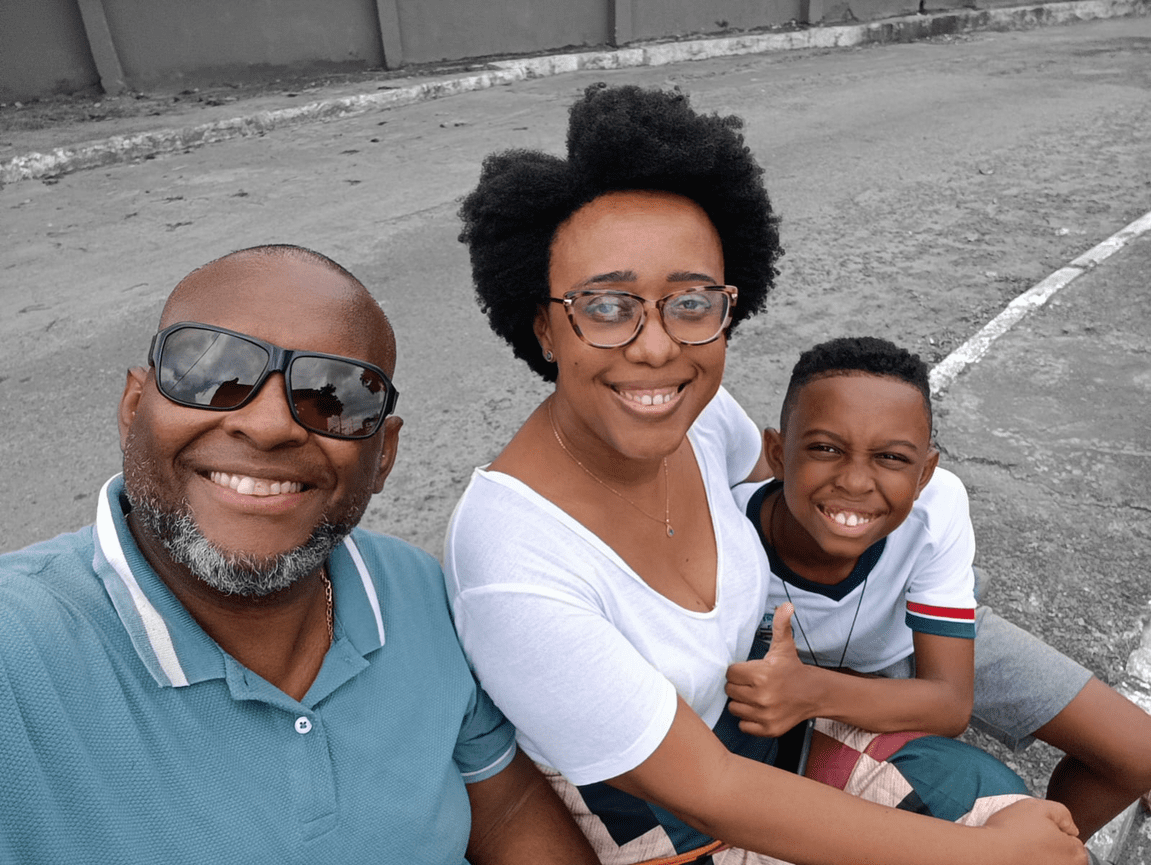Editors Note:
As you enjoy this glimpse into the lives and faith of our sisters in South American churches, we want you to know that most of these women are writing for us in a language that is not their native tongue. Where possible, we have not overly “English-ified” their writing, so as not to interfere with their own individual voice and to give you a more authentic feel as they share their hearts and experiences with us. Hugs to you all in Brazil from us at WTI!
Hope is the First to Resurrect
by Jucineide Carvalho
Hope is the last thing to die. At least this is a popular saying widely used in Portuguese and with some variations in English. I want to reflect with you that hope may even die, but, in our lives and especially in my life, hope was the first to be resurrected in my relationship with God.
There are at least three aspects that fundamentally made me look less at God: infrequency in discipleship, lack of openness in discipleship, and thinking that such behavior was normal in the Christian maturity process. I will expand my perspective and experience on each one.
Infrequency in Discipleship
Discipleship is a spiritual discipline. In the Bible, from Adam in Genesis to John in Revelation, unity, counseling and prayer among brothers and sisters have always been relevant in our relationship with God. The absence of discipleship led to several negative outcomes in the lives of Aaron, Miriam, David, Michal, Vashti, Samson and others. Obviously, this infrequency resulted in a lack of faith, the absence of hope, a strange and ridiculous look at what I already know doesn't make sense in the world and even a greater appreciation of what doesn't please God than what pleases Him. Today, I understand the madness but, in the midst of the hurricane of feelings, we can think that wrong is right. See the horrible decisions of David (2 Samuel 11 and 12) and Vashti (Esther 1).
So, if there is one piece of advice that we can learn from Adam, Miriam, David, Michal, Vashti and Samson that I would give to current Christians and future disciples is to be frequent in discipleship. God created this discipline with the aim of us being united in Him. It is a defense mechanism for our most precious asset – salvation.
Lack of Openness in Discipleship
Going a little deeper, it is necessary to say that just going to discipleship meetings does not create the union God intended when he created these disciplines. Being superficial in the world is very easy and, unfortunately, in discipleship, too.
It is possible to be in a meeting, pray together, read the scriptures, speak what you understand and not ask for help about life’s difficulties, not ask for help in prayer about complicated events, and even not bring to light acts that are preventing you from achieving your goals. Blessings come when we exercise James 5:16 (New International Version): Therefore confess your sins to each other and pray for each other so that you may be healed. The prayer of a righteous person is powerful and effective.
From adolescence onwards, our distrust in people generally grows. This distrust can lead to difficulty in opening up about problems and sins in discipleship. I have arrived at discipleship meetings with a mental list of requests for help and left without expressing any. Reputation is very important to me. I was afraid to reveal who I really am. However, if we put a good magnifying glass on this scripture and others, the point is not that someone else has the power to forgive us. It's just that God recognizes our need to vent, to look at our problem from the outside and with other experiences. In some ways, we do this with colleagues, friends, and professionals. Discipleship is a privileged space where God and His word are the main references.
Unfortunately, I also have talked about the simplest subject and excluded the most complex. Both decisions took away my faith in God's power, made me not prioritize other disciplines such as reading and meditating on the word of God, union with brothers in faith, and even neglected divine guidance and examples of gratitude from brothers of the first century regarding financial offerings.
Today, at each discipleship meeting, I leave with a lightness and the certainty that God used every second to bring us closer to Him.
Thinking Infrequent Discipleship and Not Being Open is Normal in the Christian Maturation Process
This third layer is even more pernicious because it is immaturity camouflaged as maturity. There is a passage about ingratitude in Deuteronomy 8:10-20 (New International Version) that I recommend meditation, particularly verses 17 and 18:
You may say to yourself, “My power and the strength of my hands have produced this wealth for me.” But remember the Lord your God, for it is he who gives you the ability to produce wealth, and so confirms his covenant …
It is not our capacity or our time as Christians that makes us people who need less counseling, a space to ask for help, to exchange about God’s power and guidance for life. Fortunately, on the contrary, even over time, discipleship remains a spiritual discipline. It is true that, with the experiences of Christian life, the needs, difficulties and sins are different, but due to the human condition, they continue to exist. After five years of being a Christian, I already thought I was mature and began to space out or cancel discipleship meetings.
Result: Weak faith! Years later I thought I was super strong and, surprisingly, I made the same mistake. What I learned: Time at home with God does not change the items of spiritual armor necessary for us to be strong “in the Lord and in his mighty power,” (Eph. 6:10). The armor needs to be complete at every stage of the journey. Christian life: truth, justice, evangelism, faith, salvation, the word of God, prayer, perseverance for all. (Eph. 6:14-18). Why over time does discipleship not lose its function? It's a spiritual discipline. It is not a fashion trend. It is our divine essence and it’s needed.
Discipleship is the method outlined by Christ, in which, through a relationship, a disciple leads another to a commitment to the Lord, encouraging him to imitate the Master, growing in maturity and generating new disciples of him. (MARTINS, 2021, p. 17).
Hope is an element that God gives us as a gift so that, in the midst of our mistakes, we can recognize and start over. My reflection here is to pray to God for a true return to the discipleship that God guides in which, together, we come closer to the Lord who guides and cares for us, individually and collectively.

Jucineide Carvalho was baptized in 1998. She has been married to Valter Aquino for 22 years and has a son, Vinicius, who is 10 years old.
Currently, Jucineide has had the honor of serving in the children's ministry, in the training of teachers, combining knowledge of pedagogy with the dynamic teaching of the Word of God, adapting lessons to the ages of the children. Valter is a teacher for the group of children ages 8 to 12.


0 Comments